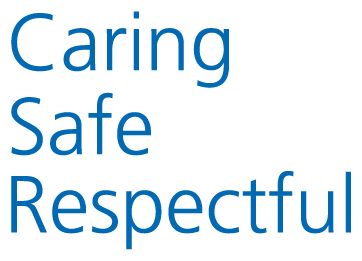Publish date: 2 October 2025
|
The spotlight is on ovarian cancer in Lancashire and South Cumbria this month, with the awareness campaign van currently on tour in the region. Each stop on the tour allows women to come forward for advice, symptom checks and signposting, as well as offering the chance to talk to those that have been affected by ovarian cancer. Keen to help raise awareness, Lancashire and South Cumbria NHS Foundation Trust trainee nursing associate Kelly Mckay-Ainsworth, from Chorley, has told her story. “Around springtime last year, I noticed I was feeling a little larger in the waistline than I normally would, and I’m usually a very slight built person,” said Kelly, 44. “I noticed the urgency for urination and the frequency being more often, I was also slightly more fatigued than normal, but I put all the above symptoms down to age and possibly being perimenopausal, and because they weren't causing great concern I never acted on them. "With hindsight, my symptoms were probably there for at least eight months prior to diagnosis.” Having injured her back last summer, Kelly repeatedly went to the doctors in the subsequent months with niggling pain and discomfort, despite staying active in the gym, swimming and walking the dog. She also put the increased fatigue, pain during intercourse and an irregular menstrual cycle down to an increased workload and a busy schedule as a mum to a teenage son and step son. By Christmas time, she was feeling heavier and larger around the abdomen, which is when she made a further appointment to see a doctor. “I looked three months pregnant,” she said. The doctor was concerned and took bloods, and within two days the results had come back, and Kelly was being referred for an urgent ultrasound, which sadly confirmed that she had cancer. “With this I was then put on the cancer pathway via the NHS for treatment,” said Kelly. “I was diagnosed in January of this year with ovarian cancer of tubo-ovarian origin, which has unfortunately metastasized to my peritoneum, bowel, stomach lining and my hepatic artery near my heart. I was informed by my oncologist I had a lot of spread and that the cancer was at advanced stages.” Chemotherapy and large-scale surgery to remove her ovaries and tubes, the falciform ligament of her liver, omental cake (stomach lining) and part of her diaphragm followed, and a more recent scan indicated that the spread of cancer had hugely decreased, and in some parts, been removed completely. Kelly has recently been informed that she is eligible for HIPEC (hyperthermic intraperitoneal chemotherapy), which would hopefully target the remaining microscopic disease and keep her cancer-free for longer. More than 7,000 women are diagnosed with ovarian cancer in the UK each year, but survival rates remain low, in part because many cases are diagnosed at an advanced stage. Through awareness campaigns such as Lancashire and South Cumbria Cancer Alliance and Ovacome’s touring van, and people like Kelly sharing their story, it is hoped that more women will come forward at the first sign of symptoms. Kelly continued: “The reason I tell my journey is to warn others to speak up and to make people aware. “It would be amazing to see more awareness made of the symptoms of ovarian cancer and for ladies to have their voices heard. “I'm aware I'm incurable, but that I'm also treatable, and we will deal with this like a chronic illness. I will have flare-ups, but we can manage them. I'm aware I have a life-limiting illness, but if I can help just one person with my story to get help sooner, then I've accomplished something.” More information about ovarian cancer can be found at www.nhs.uk/ovarian-cancer.
|



